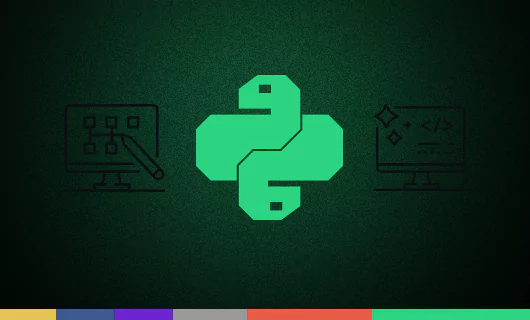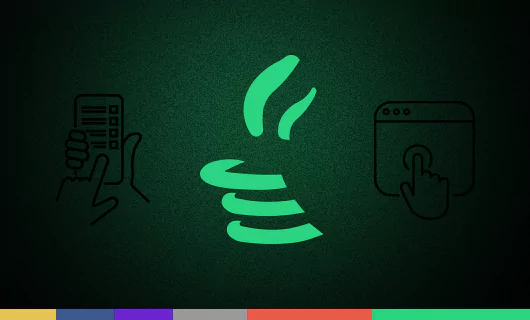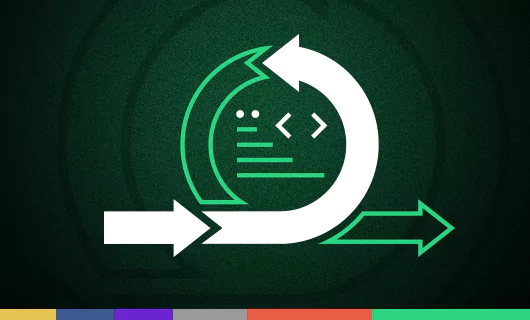A cross-platform app development framework is a tool that developers use to develop apps for multiple platforms. Developers can create apps with one-time code and run them over different operating systems such as Windows, macOS, Android, iOS, and more.
The Difference Between Native and Cross-Platform App Development
While native apps are developed keeping in mind one platform, cross-platform apps are developed to run over multiple frameworks. This framework support WORA (Write Once, Run Anywhere), the developers don’t have to write separate code for each operating system.
The Best Frameworks For Developing Cross-Platform Mobile Apps
Today, software engineers working on cross-platform development may choose at least several frameworks dedicated to specific tech stacks. Each of them has its advantages and disadvantages. Let’s take a look at the most important of them.

Ionic
Based on Angular JS, Ionic is one of the most popular and widely acceptable cross-platform app development frameworks.
Programming language:
Ionic is developed using top-tier programming languages such as JavaScript, HTML, and CSS.
Features of Ionic:
- Open-source frontend framework that allows modifications in the code structure.
- Alteration in code allows developers to build apps quickly while saving time.
- SaaS UI-based framework developed primarily to support the mobile OS.
- Cordova plugin allows access to the device features such as GPS, camera, etc.
Reactive Native
When developers want to develop real code using the JavaScript framework, React Native helps. It gives a native-like feel to cross-platform apps that work on iOS and Android.
Programming language:
The platform combines JavaScript and React.JS to enable developers to code in Objective-C, Java, or Swift.
Features of Reactive Native:
- React Native is an open-source cross-platform app development framework.
- Because React Native is based on React, it has the best JavaScript libraries.
- Apps that are developed with React Native have a captivating UI/UX.
- Compatible with third-party plugins including Google Maps.
Xamarin
With sophisticated APIs, Xamarin helps build apps that have a native-like feel and the best aesthetic appearance.
Programming language:
Xamarin supports Objective-C, Java, and C++ to allow developers to reuse third-party codebases.
Features of Xamarin:
- Eliminates hardware-specific compatibility issues.
- With native libraries, developers can achieve native-level customization.
- Lower the cost of app development while speeding up mobile applications.
- Allows designing native-like mobile apps with best-in-class interfaces and controls.
Flutter
Developed by Google, the tool comes with a graphics engine and simplifies the development of web and mobile apps in Android, iOS, macOS, Windows, Linux, and other platforms.
Programming language:
Flutter uses its own programming language called Dart to build apps.
Features of Flutter:
- Includes custom widgets, libraries, documentation, and tools for ease of use.
- Avoids using a bridge to communicate with OS, which reduces performance issues.
- Speed and cost-optimization capabilities allow for the creation of top-tier products.
- Eliminates the need to update apps’ user interface elements manually.

NativeScript
An open-source framework that allows the development of mobile applications on Android OS and Apple iOS. One of the major attributes of Native Script is that it’s quicker.
Programming language:
Native Script is based on Angular, JavaScript, and TypeScript.
Features of NativeScript:
- Renders compelling, accessible, and platform-specific UI.
- Adapts quickly to a developer-defined set of instructions.
- Gives developers access to complete web resource that includes responsive plugins.
- Allow developers to access native iOS and Android APIs.
Node.js
A JavaScript runtime framework that is developed on the Chrome V8 JS engine. Node.js in particular supports server-side development of networking apps.
Programming language:
Node.js framework works on C, C++, JavaScript, and CoffeeScript.
Features of Node.js:
- With asynchronous APIs, Node.js is non-blocking; so, servers do not wait for API data.
- Integrates a responsive library built on Chrome V8 engine that speeds up the code execution.
- Utilizes a single-threaded model to deliver flawless apps that are scalable.
- Reduces response time for requests that are sluggish.
Appcelerator Titanium
By using the native components in JavaScript code, the Appcelerator framework focuses on speeding up the overall app development.
Programming language:
Appcelerator uses JavaScript at its core.
Features of Appcelerator Titanium:
- Integrates ArrowDB which is a schema-less data store for deploying data models.
- Includes pre-built connectors for MS SQL, Microsoft Azure, Box, Salesforce, etc.
- Allows access to a wide variety of tools for quick application development.
- Enables developers to create app prototypes in lesser time.
Sencha Touch Now Merged With Ext JS
An open-source app development framework that allows for developing large enterprise-level apps and maintaining them efficiently.
Programming language:
Sencha Touch uses JavaScript for building scalable business apps.
Features of Sencha Touch Now Merged With Ext JS:
- Offers native-like themes for the major OS including Android, BlackBerry, iOS, etc.
- Supports Cordova to enable native API access which is an incredible feature.
- Facilitates code compatibility and visibility between old and modern devices.
- Integrates 50+ customizable widgets along with forms, menus, toolbars, and more.
PhoneGap
PhoneGap, with cloud capabilities, allows developers to share the app with peers during the development phase and get feedback on the same.
Programming language:
Uses JavaScript, HTML5, and CSS for developing cross-platform apps.
Features of PhoneGap:
- Follows plugin-able architecture that makes extensive access to APIs possible.
- Supports built-in device features including camera, GPS, storage, phonebook, etc.
- Minimizes the learning curve by eliminating the need to learn programming languages.
- Simplifies the lives of developers by facilitating advanced development features.
Corona SDK
An open-source framework that enables developers to create 2D mobile applications for major operating system platforms including Windows, Android, iOS, Kindle, and more.
Programming language:
Uses an indifferent programming language called Lua.
Features of Corona SDK:
- Enables 10x faster mobile app development.
- Offers 1000 that offers developers the ability to add animation, music, and more.
- Supports 200 plugins that include analytics, in-app advertising, and other features.
- Depends upon the Lua programming language that accelerates development.
Benefits of Cross-Platform App Development Frameworks
Using a cross-platform app development framework offers numerous benefits to developers. Some of these advantages include:
- Better exposure to the target audience.
- Reduced app development cost.
- Simplified app deployment and easy maintenance.
- Accelerated and optimized the development process.
- Reusable code that saves time and effort.
- Easy integration with Cloud platforms.
How to Choose the Best Cross-Platform App Development Framework for Your Project?
Choosing the best cross-platform app development framework for building a business application is challenging. All major frameworks are developed keeping in mind the efficiency, reliability, and scalability factors.
No one framework suits all kinds of app development projects. The framework you select is based on specific enterprise and app’s functional requirements. When it comes to selecting a framework, you must contact app development professionals to make the right decision.

The Most Known Cross-Platform Apps Examples
- Ionic: EA Games
- Flutter: Alibaba, eBay, Google Pay
- React Native: Shopify, Skype, Instagram, Bloomberg
- Xamarin: Alaska Airlines
- Native Script: Breethe, Daily Nanny
How the Proccess in Cross-Platform App Development Looks Like?
- Define your objectives
- Explain app features and functions
- Research your competitors
- Create wireframes and use cases
- Test the wireframes
- Revise code and check functionality
- Choose an app development path
- Build a mobile app
- Perform A/B testing
- Launch the app to end users
Conclusion
Cross-platform apps are popular as they allow developers to reuse code. A single code can be used to build apps that can run flawlessly on different platforms including macOS, Windows, Android, iOS, BlackBerry, and more.
Scalo - Your Trusted Software Partner
At Scalo, we know perfectly how crucial seamless app performance is and how great an influence it has on the final user experience. If you plan to build cross-platform app, our top-notch experts in Node JS or React native frameworks are here to help. Simply contact us, and let’s kick off a new project together.
Frequently Asked Questions (FAQs)
How to Decide Which Framework to Use?
The framework that you pick for cross-platform app development depends on business needs and the app’s requirements. Consulting a cross-platform app development company can help make an informed decision
How Do You Make a Mobile App Cross-Platform?
In the cross-platform app development process, the developers leverage a uniform API that is created on native IDEs, and native SDK, along with the same codebase for building Android and iOS apps.
What is Cross-Platform App Development?
Cross-platform app development is the process of developing mobile apps for different operating systems using a single code and user interface.
What Cross-Platform App Development Tools we Have?
- Iconic
- React Native
- Xamarin
- Flutter
- Native Script
- Node.js
- Appcelerator
- PhoneGap
- Sencha Touch
- Corona SDK





